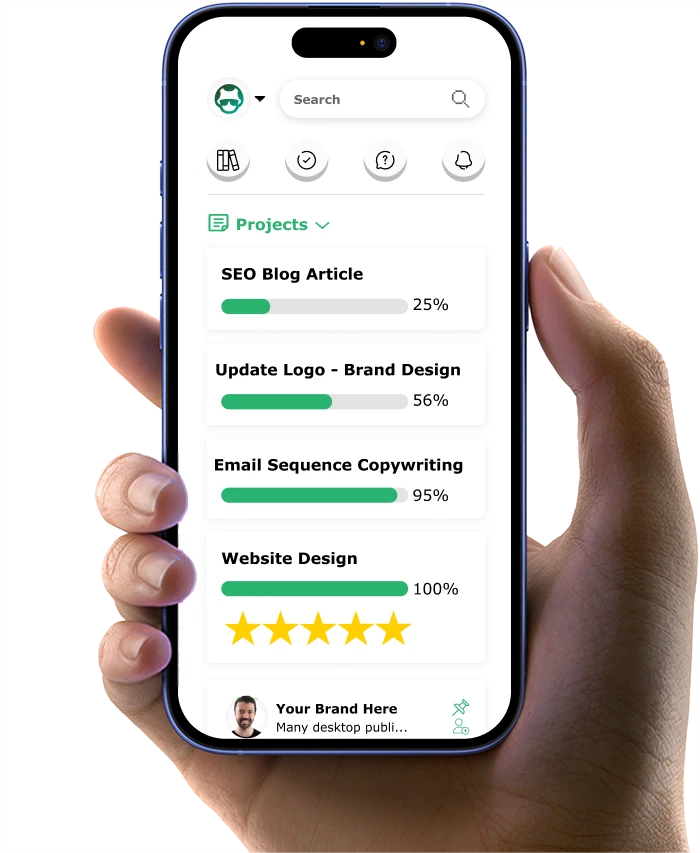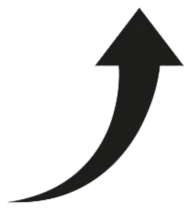The Amy Porterfield Upsell: How Getting Creative with a Simple Upsell Added $170K to the Bottom Line

People sometimes ask me if I worry about linking to potential competitors.
My answer? No.
At Growbo, we don't care where good examples come from.
I don’t see other companies as competitors because we don’t have the same audience—plus, if I see good content, I want to share it regardless because it helps you!
One of my team members recently recommended a podcast from Amy Porterfield, and I was interested. After listening to the data she shared, I was excited—and I thought you would be too. Her upsell example is compelling, and I think it’s something you should consider trying.
A well-designed upsell is a great tool to have in your box – whether you feel like your business has plateaued, or you’re just looking to maximize the value of every customer.
In this article, we're going to break down exactly what she did and how you can apply the same lessons to your funnel. Even though Amy’s example is from a few years back, it's still super relevant—earning $175K from a simple upsell is always relevant :-)
So, how did she do it?
[wufoo username="petovera" formhash="q16jiv6h0lidywz" autoresize="true" height="260" header="show" ssl="true"]
Adding an Upsell to Your Next Promo
Amy starts off by discussing her recent launch of a course titled “Webinars that Convert.” Of course, as part of this launch, she offered an upsell (if you want to see what that upsell looked like, you can get it here).

Basically, she says that for her purposes, the definition of an upsell is when:
- Someone buys a product or service from you online
- They fill in their payment details and finish up the transaction
- you offer them one more opportunity to buy from you before you take them to the “thank you” page
It’s crazy simple, right? Next, we’ll look at how Amy created upsells.
Three Important Factors When Creating Your Own Upsell
Amy goes on to say that there are three important elements to creating any upsell. Consider these factors:
- What is the best upsell you can offer that is relevant to the product you just sold?
- How do you price your upsell?
- What is the flow of your upsell process?
Amy’s Process
So, how did she make it all work? In Amy’s case, as I already stated, she was launching a new course. The program was available for a one-time fee of $997, or customers could spread it out by paying $97 per month for twelve months.
For the upsell, she offered a pack of five slide deck templates (if you remember, the course was about webinars, and slide decks are an important part of that). The templates were professionally designed and came in both PowerPoint and Keynote formats, for a total cost of $297.
The Breakdown
Amy actually broke the whole thing down into a three-part method that looked like this:
- Immediately after purchase, the customer was offered the template pack at $297
- If they declined, they were then offered a payment plan (same total price, same template pack)
- If they declined a second time, they were then offered a “light” version of the template pack —instead of all 5 slides, they would get 2 of Amy’s choosing, at a total cost of $97
It is important to note that if someone purchased the first offer, they would never see the pages offering the payment plan or the “light” pack. The offers were based on their behavior.
Did it Work?
Short answer: yes. It worked VERY well.
Amy welcomed over 1000 people into the course in less than 2 weeks, and over 58% of those people also took the upsell. The actual breakdown was: 37% of people took the first offer (for $297), 13% took the two-pay, and 23% took the “light” offer (for $97).
That’s over $170,000 in revenue, just from the upsell.
Why Did it Work?
Let’s go back to those three points Amy discusses at the beginning of the podcast.
- Choosing an upsell for your program: Like Amy, you’re going to want to choose an upsell that is related to your product or program. So, if you’re selling productivity coaching, for example, you’re not going to want to try to upsell a book of healthy recipes and eating tips. That just doesn’t make sense.
She says the question you want to ask is, “How can you help (the customer) go through the program faster or easier, or streamline the process or support them at a level that they wouldn't normally get inside your program?”
You want to make the product you’re selling easier to use. If we go back to that earlier example of selling productivity coaching, maybe your upsell is instructional resources like worksheets, tutorials, and admittance to a private online group—something that would be really useful, but that the population in general does not have access to.
What you DON’T want to do is make things more difficult for customers. Your upsell shouldn’t be something that is necessary in order to succeed, or something that’s going to create more work. The goal is to make things easier for your customer.
For Amy, that meant offering a set of template decks (full of customizable slides). Her audience had already seen similar slides in her own presentation, and (hopefully) they liked them. It would benefit them to have access to comparable templates to use in their own webinars, without having to do the work themselves or find a designer.
- Pricing your upsell: One of the biggest problems many entrepreneurs face is knowing how to price their products. Pricing is often an experiment—you can see what your competitors charge, and you can play around with your own prices to see where people bite and where they don’t and adjust as needed.
Now, in the case of an upsell, it’s actually pretty easy. You’ve already sold the initial product, so you have that price-point to use as reference.
Obviously, you can’t make a giant leap here, so if your main product or service was priced at $200, you’re not going to price the upsell at $800. The customer should feel like they’re getting a deal, but your upsell also needs to fit within their budget.
Amy notes that 80% of people who paid full price for her program also took the upsell—that’s probably because they already had a pretty decent cash flow and it wasn’t a huge stretch for them a pay another $397. But what about the people who took the payment plan? Not as many of them took the full upsell.
That’s why, at least in Amy’s case, it was important to offer several options (a two-pay plan and a “light” deck). Your upsell might not work for everyone if it’s all-or-nothing. And, of course, knowing your audience is key here—you should have a pretty good idea of what they will and will not pay for, and how much they’re willing to spend.
- Determining the flow of your upsell process: Amy talks a lot about integrity, and how you can’t trick people into buying something they don’t want (an especially important point post-GDPR!).
User experience is an immensely important part of your upsell process. If they feel like they’re being bullied, or that you’re being shady, they’re not going to be interested.
In Amy’s case, the most important point was that she didn’t keep discounting after the first offer. Her was price was $397, and she didn’t change that after they declined.
She offered them a 2-pay option, and then a smaller package at a lesser price, but she never said “Oh, ok, I’ll give you the full package for $297.” Because that would have been inconsistent and shown a lack of integrity.
Will I Have Similar Results?
Well, probably not. Amy herself says that her conversion rate was unusually high. You can’t go into your first up-launch expecting to do $170k in business (or even $3k).
That said, there's a lot here that's worth using. If you keep trying, and you perfect your package/pricing/pitch, you might get to those higher numbers someday.
Conclusion
When people decided to make a purchase and went to check out on Amy’s page, they received an upsell offer. That upsell and how she presented it in a creative, multi-step way netted her an additional $175,000. Is this possible in your own business? It’s worth a try.
Even if you only net an extra $1,000, it’s still extra money in your pocket—for minimal time and effort. And over time, your process will improve, netting you more at each try.
Here are some of my key takeaways:
- You don’t need multiple offers—just one core product that is complementary to what you already sell
- Your upsell should make using your product or service easier, but should not be necessary
- In order to entice more buyers, you can offer different packages at various price-points
- The upsell should not be priced higher than your core products—while it is possible to make this work, it’s not easy
Have you had any success using upsells in your own sales funnel? How do you think your process will change after reading this?
Did you connect with anything in this article? Try checking out my “
Keep hustlin’, stay focused,
— Matt













